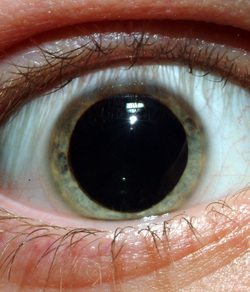Fight or Flight
When we have excessive stress (internal or external), a reaction is triggered called the fight or flight response. This response is hardwired into our brains and designed to protect us from harm. This reaction occurs in a section of your brain called the hypothalamus. When activated, this begins a chain of nerve cell firing and chemical releases that help your body be ready for fighting or running. Chemicals like adrnaline, noradrenaline, and cortisol are released into the blood. The series of chain reactions cause our body to undergo a lot of changes. Our breathing rate increases, blood moved away from digestive tract and targeted toward our limbs and muscles, our pupils dialate, our sight sharpens, awareness increases, feeling of pain belittles, reactions sharpen, immune system increases. Ultimately, we scan our environment for the "enemy". When fight or flight has been activated, we see everything and everyone as a possible threat. Rational thoughts leave your mind and our beliefs are taking over. Therefore, we are in attack mode. We could overreact at the slightest things. Everything is danger and our fear is intensified. We focus on the things that can harm us. Too much stress can damage brain cells. Homeostasis is the process that takes place when the threat is over. Homeostasis is the body's ability to regain balance.



